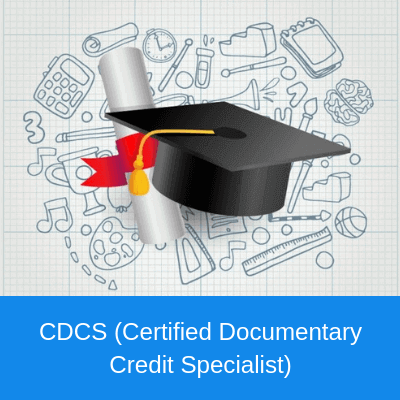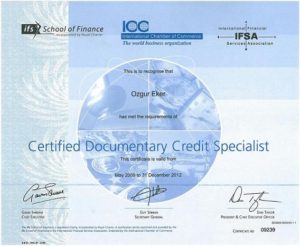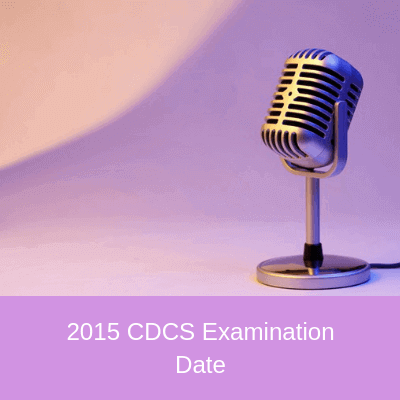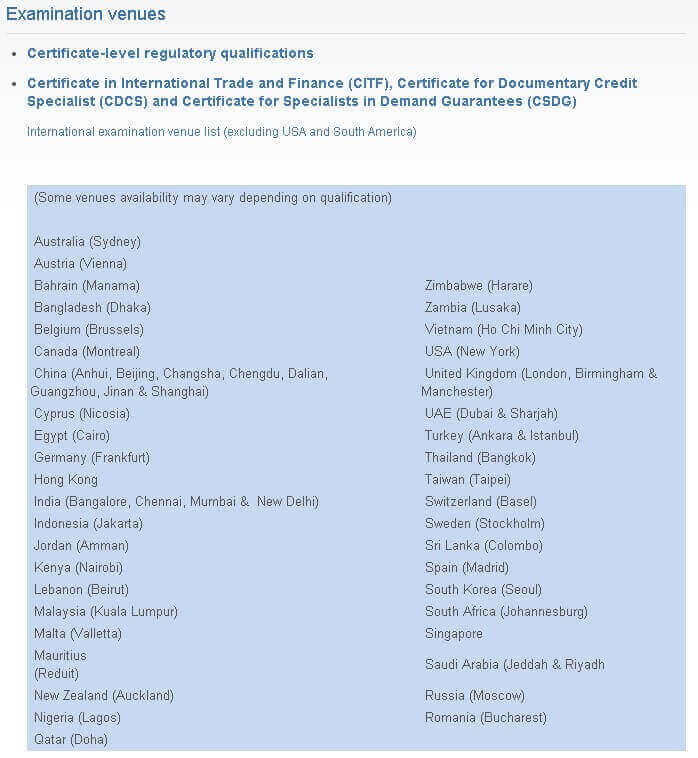What is CITF Certification (Certificate in International Trade and Finance)?
CITF is the abbreviation of the Certificate in International Trade and Finance.
Certificate in International Trade and Finance (CITF) is a title in international trade finance.
You have to pass a written examination that takes two hours in order to be qualified as a CITF.
CITF certificate has been designed for exporters and importers. Banking professionals may also be benefited from this internationally recognized certificate.
CITF certificate programme has been developed by The London Institute of Banking & Finance in consultation with trade finance experts from across the world.
CITF combines trade finance theory and practice.
By having this certificate you prove that you have enough technical knowledge in international trade finance with the skills to apply them in real life situations.
Scope of the CITF Certificate:
After studying CITF, you will understand:
- The global trade dynamics and factors shaping the world economy as a whole,
- The role of the ICC in international trade and the rules that have been created by ICC,
- How to use ICC international model contracts in daily life,
- The basics of trade terms and Incoterms rules,
- The documents used in international trade such as financial documents, official documents and transport documents,
- What are the risks associated with foreign currencies when exporting and importing?
- How to mitigate foreign exchange risks in international trade finance?
- What are the payment methods in international trade?
- What are the differences between open account, documentary collections, documentary credits and bank payment obligations?
- The fundamentals of guarantees and standby letters of credit.
- Differences between short, medium and long term trade finance
- Fundamentals of Islamic trade finance
- How to handle disputes arising from international trade operations?
- Basics of arbitration
- Fraud prevention and anti-money laundering
Eligibility of the Examination:
CITF would be a highly valuable achievement for exporters, importers and banking professionals who would like to prove their knowledge in international trade and finance in a global scale.
There are no entry requirements for CITF certificate examination. Anyone who pays the submission fee may enter the CITF examination.
But please keep in mind that CITF examination has a moderate difficulty level. Well preparation is a must, experience on related fields is a good asset.
The examination takes place in English language only.
Examination Format:
Assessment for CITF consists of a 2 hour multiple-choice examination, designed to test knowledge and its application.
The examination paper consists of 100 multiple-choice questions, split in to two sections:
- Section A – 80 multiple-choice questions
- Section B – four case studies, each with 5 linked multiple-choice questions.
To pass you must achieve the required pass mark of 70%.
CITF is examined in over 30 countries each year and are given in paper format at designated international centres.
Important Note: Examination structure can be modified from one exam to another.
Organizer:
CITF examination held by The London Institute of Banking & Finance. You can reach their website from this link.
Costs:
CITF examination which is held by The London Institute of Banking & Finance cost you around 580GBP. (650EUR)
*for exact and up-to-date cost please refer to above official website.
How to Prepare?
The London Institute of Banking & Finance provides following learning materials to each candidate:
- online access via MyLIBF – www.myLIBF.com to learning materials and to KnowledgeBank (virtual library);
- unit syllabuses;
- study text;
- specimen paper; and,
- student-led forum.
Additionally, candidates can benefit from ICC publications as indicated below:
- 2018 ICC Guide to Export/Import Global Business Standards & Strategies
Guillermo C. Jimenez - Incoterms 2010 English Edition By the International Chamber of Commerce (ICC)
ICC Publication No. 715E, 2010 Edition - Business Guide to Trade and Investment – Volume 1 – International Trade
Arthur E. Appleton and Patrick F.J. Macrory - Drafting and Negotiating International Commercial Contracts A practical guide, with ICC model contracts – Third edition Fabio Bortolotti
- ICC Uniform Customs and Practice for Documentary Credits – UCP 600 ICC Publication No. 600E, 2006 Edition
Assessment Criteria:
You can reach CITF examination learning outcomes and assessment criteria from this link.
How to Apply?
You should apply for a CITF certificate exam from The London Institute of Banking & Finance’s official website.






